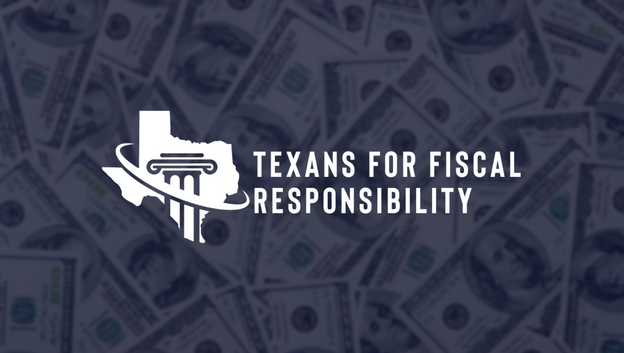
Ask yourself, do you believe the government is too big already?
More often than not the answer we get at Texans for Fiscal Responsibility (TFR) as we travel around the state, visiting with Texas taxpayers, is a resounding yes!
Despite this, for years now, the Texas Legislature has appropriated more money to fund state government than in the legislative session that preceded it.
The Last Two Decades
Republicans have controlled every statewide elected office and held majorities (to include a supermajority at one point) in the state legislature for nearly two decades. Despite this and in spite of many of them claiming to be fiscally conservative, state government appropriations have increased nearly 170% in that time, whilst Texas’ population has grown by about 40%.
Now, undoubtedly, that population growth does come with its own challenges, including things like infrastructure and public safety, which necessitate government spending, but Texas is on track to triple its state spending in a matter of only 25 years.
Why then, do some lawmakers consider the current growth ‘conservative’?
“Conservative” Texas Budget
The answer to the aforementioned question is simple. The recent budget growth abides by being within the confines of growth in population and inflation. What this metric assumes, however, is that the previously appropriated money by the state legislature was all absolutely necessary and not wasteful.
To be clear, using these metrics is certainly better than not having restraints at all, no matter how arbitrary, but with increased spending comes increased tax burdens and liabilities on future prosperity.
TFR believes that fiscal conservatives are starting from the wrong premise. If the state government is assumed as too large, why do we continue to fund more of it every biennium?
State Spending Limit(s)
In 2021, during the 87th legislative session, the state legislature finally passed a long-term priority of fiscal watchdogs in Texas by approving another constitutional state spending limit.
Previously, the state constitutional spending limit only included state tax revenue that was not dedicated by the constitution. Now, it officially sets the spending limit to the confines of the rate of growth of both population and inflation.
In 2012, Republicans overwhelmingly supported a ballot proposition in support of this spending limit addition, and though legislative efforts were stalled for years, its passage in the most recent regular legislative session, creates a good step forward in state spending going forward, but is it enough?
Fiscal Responsibility Not Prioritized in Legislature
Simply put, the Texas Legislature does not prioritize fiscal responsibility.
Yes, in recent legislative sessions they have generally ‘slowed the growth’ by which the state appropriates money, which should be lauded, but legislative leadership does not seem interested in actually cutting that spending or ensuring the government itself stops growing.
If they were serious, state lawmakers and more specifically those who sit on the respective appropriation committees would make actual efforts to rid the state budget of onerous government agencies and programs and streamline legitimate government functions to run more efficiently.
This phenomenon is reflected in our own Fiscal Responsibility Index, where the overall average of the Texas Legislature is that of a 40 or a possible 100. (The State Senate average is that of 50/100 whilst the House of Representatives is that of 38/100)
Lawmakers routinely approve of legislation that increases the use of corporate welfare, increases regulation on businesses, and continue the functions of state agencies that were recommended to either be abolished or reformed by the Texas Sunset Commission, which literally exists to review these things.
In order to ensure future prosperity, TFR believes that Texas taxpayers should demand that their lawmakers ban the practice of taxpayer-funded lobbying, eliminate the property tax, and adopt a ‘no-growth’ budget among other issues.
Reports are already circulating that the state lawmakers could be looking at nearly a $25 billion surplus in the next legislative session. With inflation hitting yet another 40-year high causing the cost of living to rise, coupled with reportedly high property tax appraisals all across the state, despite promised relief by the state legislature, the time is now for the state to get its fiscal house in order and prioritize fiscal responsibility.




